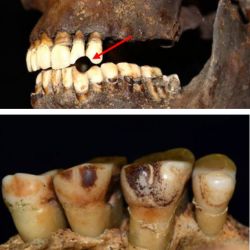-
Study
-
Quick Links
- Course Search
- Fees and Funding
- Unlock Your Potential
- Still time to Apply
- Higher and Degree Apprenticeships
- Continuing Professional Development
- Still time to apply
-
Undergraduate
- UCAS Clearing & Confirmation 2025
- Application Guides
- UCAS Exhibitions
- Foundation Years
- School & College Outreach
- Information for Parents
-
Postgraduate
- Application Guide
- Postgraduate Research Degrees
- Flexible Learning
- Change Direction
- Register your Interest
-
-
International
International
Northumbria’s global footprint touches every continent across the world, through our global partnerships across 17 institutions in 10 countries, to our 277,000 strong alumni community and 150 recruitment partners – we prepare our students for the challenges of tomorrow. Discover more about how to join Northumbria’s global family or our partnerships.
View our Global Footprint-
Quick Links
- Course Search
- Undergraduate Study
- Postgraduate Study
- Information for Parents
- London Campus
- Northumbria Pathway
- Cost of Living
- Sign up for Information
-
International Students
- Information for Students
- International Events
- Application Guide
- Entry Requirements and Education Country Agents
- Global Offices
- English Requirements
- English Language Centre
- International student support
- Cost of Living
-
International Fees and Funding
- International Undergraduate Fees
- International Undergraduate Funding
- International Masters Fees
- International Masters Funding
- International Postgraduate Research Fees
- International Postgraduate Research Funding
-
International Partners
- Agent and Representatives Network
- Global Partnerships
- Global Community
-
International Mobility
- Information for Northumbria Students
- Information for Incoming Exchange Students
-
-
Business
Business
The world is changing faster than ever before. The future is there to be won by organisations who find ways to turn today's possibilities into tomorrows competitive edge. In a connected world, collaboration can be the key to success.
More on our Business Services -
Research
Research
Northumbria is a research-rich, business-focused, professional university with a global reputation for academic quality. We conduct ground-breaking research that is responsive to the science & technology, health & well being, economic and social and arts & cultural needs for the communities
Discover more about our Research-
Quick Links
- Research Peaks of Excellence
- Academic Departments
- Research Staff
- Postgraduate Research Studentships
- Research Events
-
Research at Northumbria
- Interdisciplinary Research Themes
- Research Impact
- REF
- Partners and Collaborators
-
Support for Researchers
- Research and Innovation Services Staff
- Researcher Development and Training
- Research Ethics and Integrity
- University Library - Open Access
- Vice Chancellors Fellows
-
Research Degrees
- Postgraduate Research Overview
- Doctoral Training Partnerships and Centres
- Academic Departments
-
Research Culture
- Research Culture
- Research Culture Action Plan
- Concordats and Commitments
-
-
About Us
-
About Northumbria
- Our Strategy
- Our Staff
- Place and Partnerships
- Leadership & Governance
- Academic Departments
- University Services
- History of Northumbria
- Contact us
- Online Shop
-
-
Alumni
Alumni
Northumbria University is renowned for the calibre of its business-ready graduates. Our alumni network has over 246,000 graduates based in 178 countries worldwide in a range of sectors, our alumni are making a real impact on the world.
Our Alumni - Work For Us
What will I learn on this module?
This module has been designed to support you to recognise key concepts and underpinning knowledge about social work assessment and intervention to promote change with service users. You will examine a range of assessment and intervention methods and approaches within the social work process. Through a range of teaching and learning strategies you will be encouraged to explain and distinguish between the various intervention approaches and models of assessment. The module aims to orientate you to the breadth of social work processes, as well as the language and key terms. This module builds upon learning at Level 4 and aims to support you to extend and develop further practice skills in preparation for your first assessed practice learning opportunity.
Through this module you will explore frameworks and models for practice to enable you to develop your ability to respond to practice situations. A focus on specific forms of intervention and techniques will enable depth of knowledge to be gained, and core skills to develop, that will be applied in practice learning.
The syllabus will include:
• Models of assessment, gathering information and child observation
• Methods of intervention including planning and review.
• Enhanced communication skills and self-awareness in practice situations
• Management of self during assessments taking into account risks and assets.
• Incorporating personal and professional boundaries into practice
• Applying and using specific frameworks for assessment and models for intervention.
• Presenting and managing self within situations where conflict is an issue.
How will I learn on this module?
Teaching and learning strategies for this module will include lectures and seminars to outline the main concepts, trends and theories. The module incorporates skills development days and simulation activities, facilitated by teaching staff, practitioners and service users, which will focus on managing self in formal situations and developing more advanced practice skills in working with people who present particular challenges. Facilitated group discussions will be integral to the module where you will explore key concepts in more depth and draw out individual and collective analysis. There are 35 placement days attached to this module where you will have the opportunity to develop knowledge and skills as developing social work practitioners with service users, carers and other professionals in practice settings. You will be expected to engage with directed independent study tasks, as well as working in informal groups to present your ideas. The module will be summatively assessed by completed practice learning documentation, a presentation and written assignment after the completion of the assessed placement.
How will I be supported academically on this module?
Lecturers will facilitate seminar groups to support academic development. You will have access to lecturers at specifically designated times via lectures, seminars and email. Formative and summative assessment tasks include ‘feedforward’ in preparation for assignments, and ‘feedback’ to identify aspects of students’ strengths and also aspects which require development. Your Personal Tutor will also meet with you regularly to provide both academic and pastoral support. Workshops and seminars will provide the opportunity for you to explore assessment and intervention skills.
A key purpose of the module teaching and learning strategy is to enable you to have the opportunity to practise direct social work skills. The module will incorporate skills development days which will focus on managing self in formal situations and developing more advanced practice skills in working with people who present particular challenges. The module (alongside SW0507) involves a practice learning placement. The learning in practice will be supported and assessed by an appointed practice educator in the workplace. Formative assessment will be provided within regular supervision sessions and via an interim placement review. Teaching and learning strategies provided by the practice educator will include direct observation, practical experience, individual supervision, discussion, written work, reading, reflection and directed learning
What will I be expected to read on this module?
All modules at Northumbria include a range of reading materials that students are expected to engage with. Online reading lists (provided after enrolment) give you access to your reading material for your modules. The Library works in partnership with your module tutors to ensure you have access to the material that you need.
What will I be expected to achieve?
Knowledge & Understanding:
1. Understand and articulate the social work process in relation to assessment, planning, intervention and review.
2. You will be able to develop and demonstrate a planned and structured approach to building relationships with service users by drawing on relevant theories and approaches.
Intellectual / Professional skills & abilities:
3 You will be able to appraise, select and employ a range of appropriate social work interventions in order to address assessed needs.
4. You will be able to creatively use appropriate strategies in order to assess and intervene in a range of different practice scenarios.
Personal Values Attributes (Global / Cultural awareness, Ethics, Curiosity) (PVA):
5. You will work within professional guidance and be able to use a range of methods to advise, advocate and influence practice, whilst promoting service user empowerment.
How will I be assessed?
Formative
i. The aim of the formative task is to assist your preparation for the summative assessment and is an opportunity to practice your understanding of intervention skills. The formative task involves skills practice sessions using a case scenario and written reflection. You will receive peer and tutor feedback.
ii. Formative assessment on placement will be provided within regular supervision sessions with a practice educator and via an interim placement review.
Summative
The summative assessment is in three parts and all three must be passed to successfully complete the module.
i. You will produce a 2000-word assignment demonstrating an understanding of the social work process in relation to assessment, planning, intervention and review. (50% of marks)
ii. You will reflect on a practice based issue you encountered on your placements and undertake a 10-15-minute individual presentation where you will explain your rationale for your choice of intervention. (50% of marks)
iii. Fully completed Practice Learning Documentation which evidences your ability to work to the Professional Capabilities Framework at ‘End of First Placement’ level (Marked Pass/Fail by your Practice Educator)
Pre-requisite(s)
SW0417, SW0418, SW0419, SW0420, SW0421, SW0422
Co-requisite(s)
SW0514, SW0516, SW0517, SW0518
Module abstract
Assessment, planning, intervention, and review are core to the social work process. This module will support you to develop knowledge, understanding and skills to intervene to effect change with service users in a range of practice situations. In social work there is not one type of approach that fits all situations, therefore this module will present a range of assessment and intervention theories, knowledge and skills.
This module includes 35 days of practice learning and pre-placement learning will concentrate on introducing you to knowledge and theories in relation to social work interventions and assessment. The placement days attached to this module will offer you the opportunity develop your social work practice with service users, carers and professionals. The application of assessment and intervention models and methods during placement will enable you to acquire relevant underpinning theory and skills to promote positive change.
Following your placement, the module will enable you to reflect on your development of skills for social work practice and to begin preparing for your final assessed placement at Level 6.
Course info
UCAS Code L502
Credits 40
Level of Study Undergraduate
Mode of Study 3 years Full Time
Department Social Work, Education and Community Wellbeing
Location Coach Lane Campus, Northumbria University
City Newcastle
All information is accurate at the time of sharing.
Full time Courses are primarily delivered via on-campus face to face learning but could include elements of online learning. Most courses run as planned and as promoted on our website and via our marketing materials, but if there are any substantial changes (as determined by the Competition and Markets Authority) to a course or there is the potential that course may be withdrawn, we will notify all affected applicants as soon as possible with advice and guidance regarding their options. It is also important to be aware that optional modules listed on course pages may be subject to change depending on uptake numbers each year.
Contact time is subject to increase or decrease in line with possible restrictions imposed by the government or the University in the interest of maintaining the health and safety and wellbeing of students, staff, and visitors if this is deemed necessary in future.
Useful Links
Find out about our distinctive approach at
www.northumbria.ac.uk/exp
Admissions Terms and Conditions
northumbria.ac.uk/terms
Fees and Funding
northumbria.ac.uk/fees
Admissions Policy
northumbria.ac.uk/adpolicy
Admissions Complaints Policy
northumbria.ac.uk/complaints









